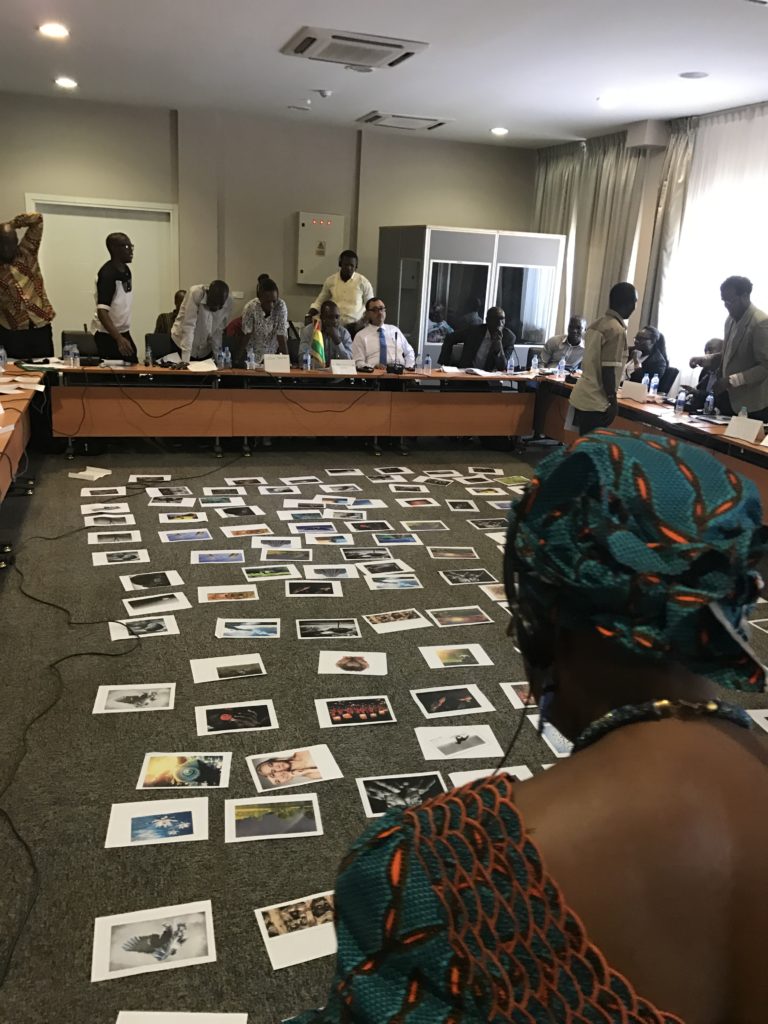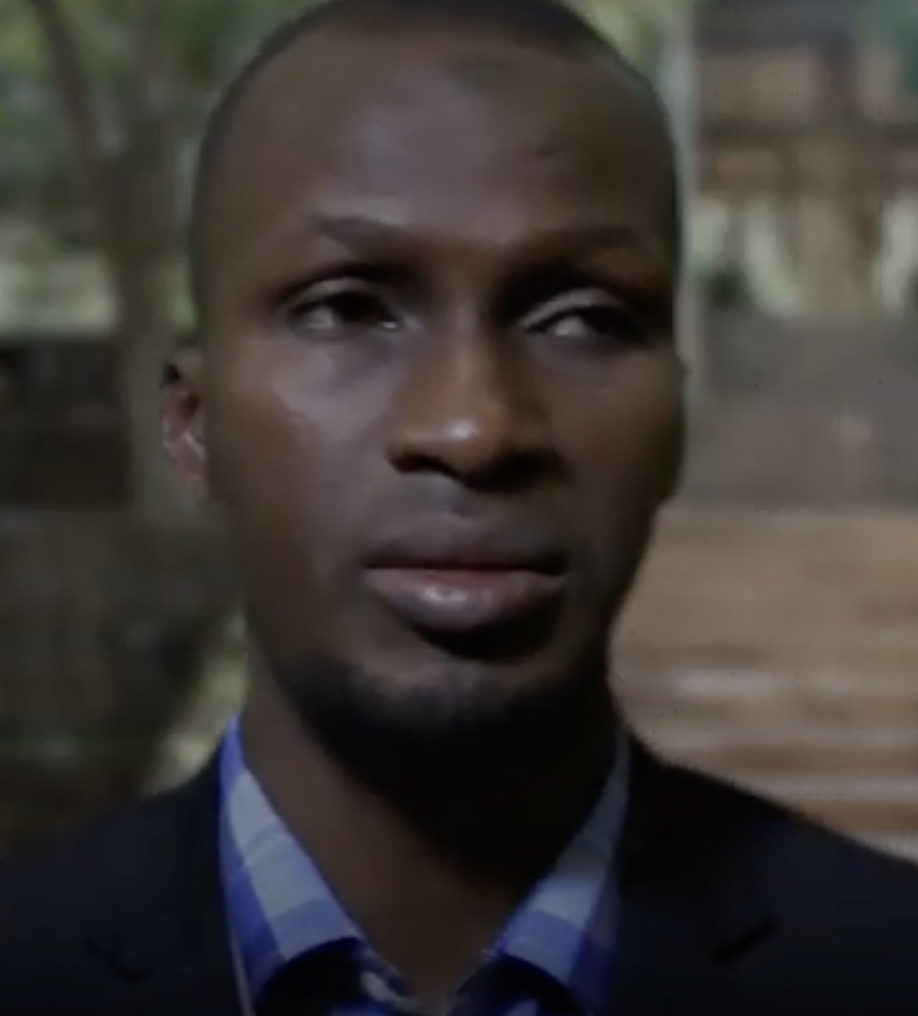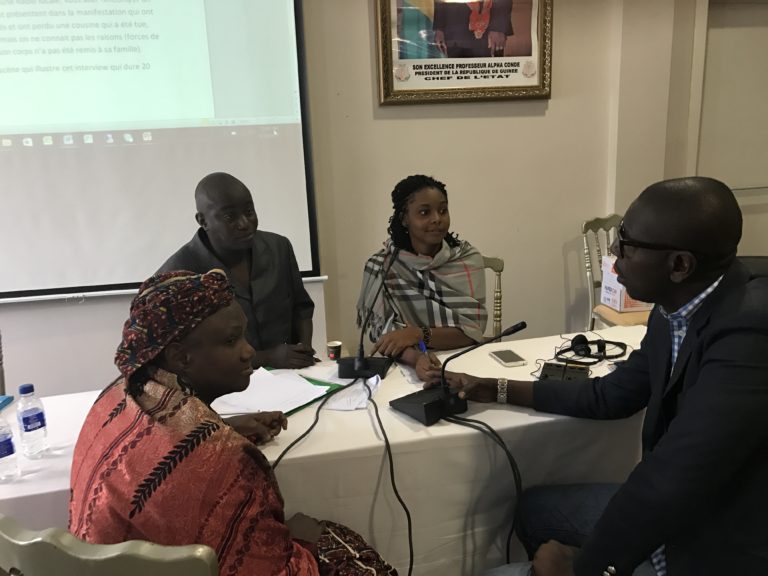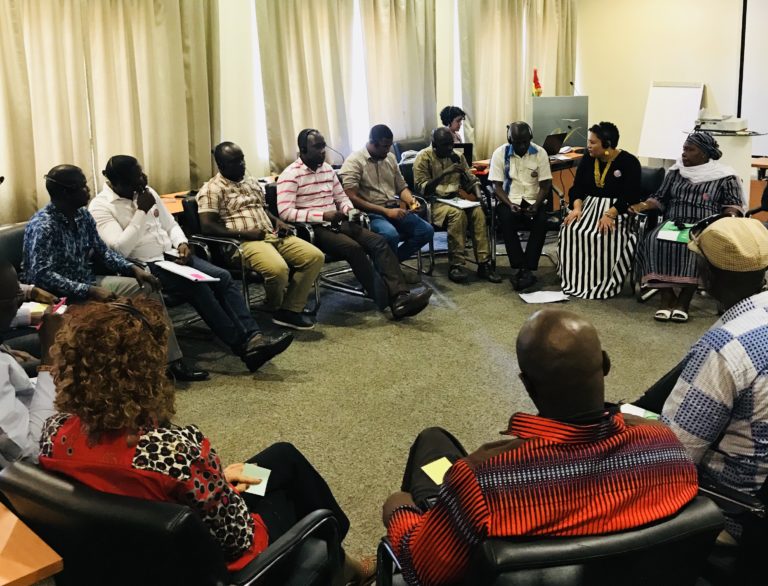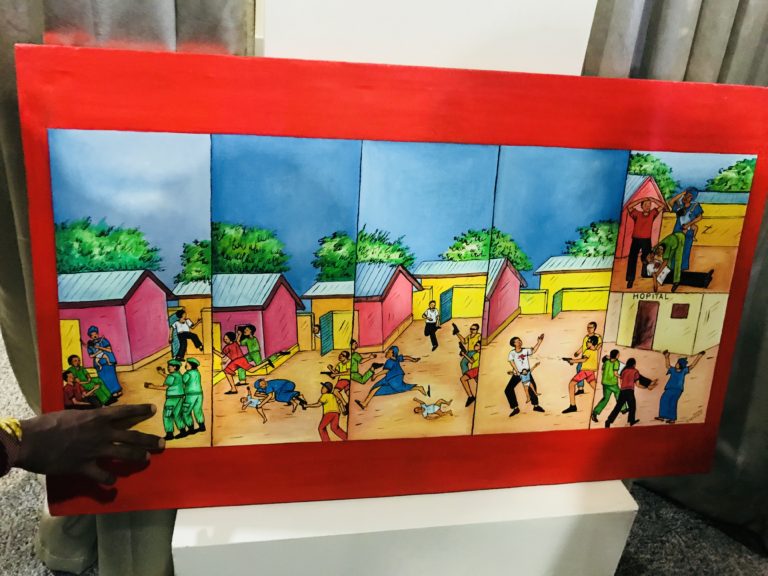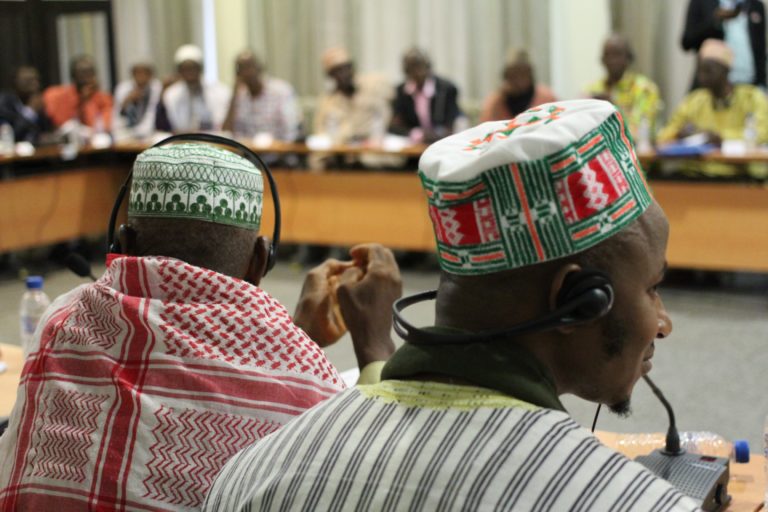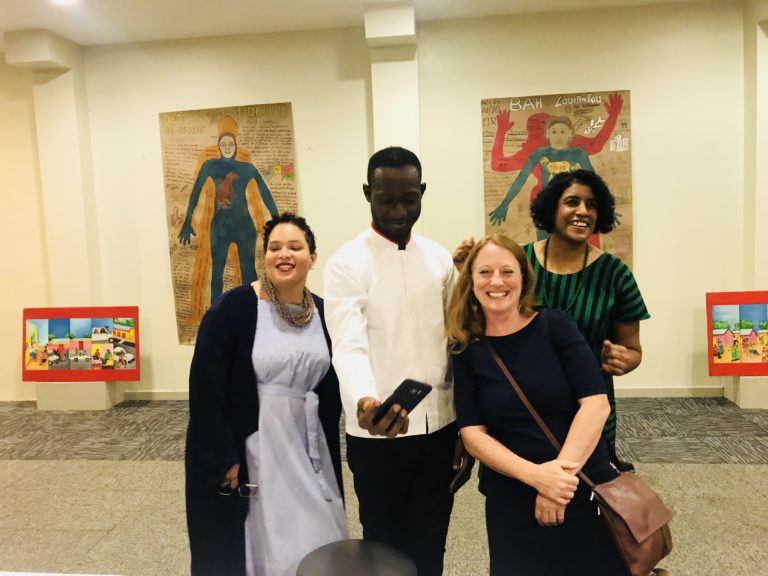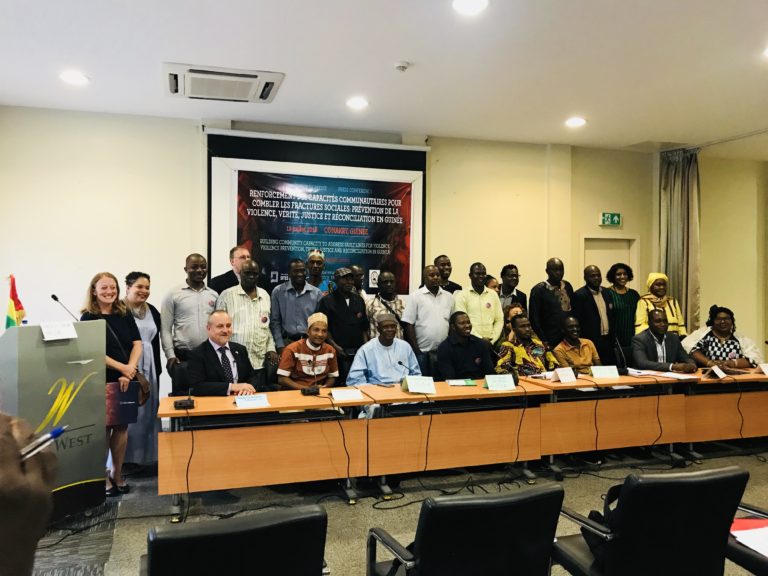Truth-Telling and Violence in Guinea
GIJTR’s programming in Guinea builds the capacity of CSOs and survivors to engage in issues of truth, justice and reconciliation in an informed and sustained manner. Through GIJTR’s technical and financial support, local partners have been able to build their organizational capacities, develop trusting relationships, and coordinate efforts, all in an effort to maximize their impact in support of a holistic transitional justice process and atrocity prevention.
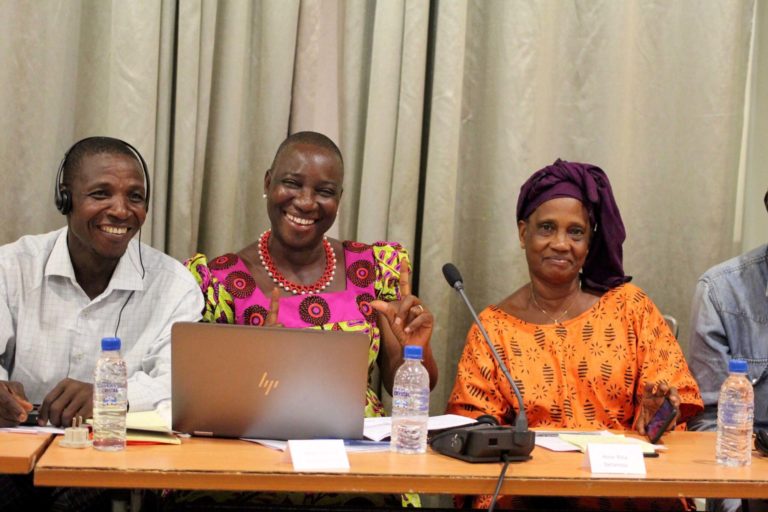
Context
Since its independence in 1958, Guinea has experienced ongoing cycles of violence characterized by massive human rights violations, violent transitions of power and ethnic and political tensions that have been further exacerbated by authoritarian rulers who failed to hold perpetrators accountable and allowed a culture of impunity to flourish. In 2008, a group of military officers, led by Captain Moussa Dadis Camara, seized power immediately after the death of the previous president and established the National Council for Democracy and Development (CNDD), which went on to commit serious human rights abuses. On September 28, 2009, CNDD forces opened fire on a group of peaceful protestors – a massacre in which 156 civilians were killed and at least 109 women and girls were raped by security forces. The protest that preceded the September 28 Stadium Massacre, as it would come to be known, had been organized by civil society leaders and opposition party leaders to denounce a long delay in holding elections and the military’s refusal to hand over power to civilians. The scale of the violence and the organization of democratic elections in 2010 led to renewed calls for accountability and reparations for survivors, in the hopes of building a more just and stable future.
Project Details
The GIJTR is working with three local partners, the Guinean Human Rights Organization (OGDH), the Association of Victims, Parents and Friends of the September 28 Massacre (AVIPA), and the Youth Consortium for the Defense of the Rights of Victims of Violence (COJEDEV), to undertake a series of interventions around truth, justice and reconciliation, guided by recommendations made in the country’s Provisional Commission for Reflection on National Reconciliation (CPRN) report. The GIJTR’s programming in Guinea aims to build the capacity of CSOs and survivors to advocate for and engage in a holistic national reconciliation process, while working with diverse groups, including women, youth and journalists to carry out community-based truth-telling, remembrance and atrocity prevention activities informed by local needs. Through the GIJTR’s technical and financial support, local partners have been able to build their organizational capacities, develop trusting relationships, and coordinate efforts, all in an effort to maximize their impact. Throughout this project, the GIJTR is also working to bring together local, national and international actors to support truth and reconciliation efforts in Guinea.
Project Objectives
Support civil society in advocating for the rights of survivors
Support Guinean civil society to address the needs of survivors and advocate for transitional justice mechanisms by sharing the experiences of other contexts, engaging them on issues related to international best practices, and building capacity for civil society engagement with domestic policy related to transitional justice.
Build the capacity of community leaders to prevent violence
Build the capacity of diverse stakeholders, including religious leaders, journalists, artists, educators, youth and women leaders, to raise awareness within local communities about the wide-ranging impacts of past violations and lead efforts to promote and reach truth, justice and reconciliation goals.
Document narratives of the past and facilitate intergenerational dialogue
Provide spaces for dialogue, remembrance and reflection about the past and encourage exchange between survivors and youth with the goal of violence prevention and empathy-building.
Provide psychosocial support capacity-building
Provide psychosocial support to survivors of human rights violations to address their urgent needs and train civil society psychosocial support practitioners to promote broader community healing.
Build the capacity of Guinean civil society organizations
Build the capacity of representatives from CSOs and victims’ associations to act as community psychosocial support practitioners, addressing survivors urgent psychosocial support needs and promoting broader community healing.
